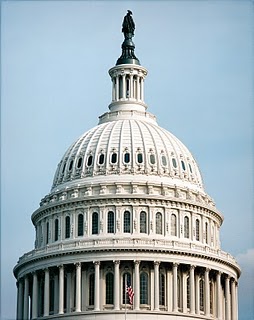Several weeks back, Sen. Claire McCaskill of Missouri made news by questioning the General Services Administration’s (GSA) hiring of a PR firm to help with crisis communications. GSA’s Kansas City office hired Jane Mobley Associates to develop a communications plan to address issues stemming from pollution problems at a federal complex there.
As someone who has done a good bit of government-related PR work over the years, I found myself talking (quite loudly) to my computer screen when I read this quote from McCaskill, “The federal government should not be spending money on contracts to manage the press,” she said. “They should answer questions openly. If this happens so easily at one federal agency, it may be going on in others.”
Yes, Senator. It is going on at other agencies. And it should.
The reason McCaskill’s comments got under my skin is that they reveal a common misperception about PR. “Managing the press” is not about deception or even obfuscation. Good, ethical PR pros would never advise a client – government or otherwise – to intentionally mislead the press and the public. Not only is it wrong, it’s just not effective. One of PR’s main purposes is to build credibility, and you can’t do that by lying or being evasive.
McCaskill’s quote also revealed a lack of respect for the public relations profession that I think is all too common. Her assumption that the government shouldn’t spend money for PR services implies that there is no expertise required for public communication and that anyone should be able to “answer questions openly.”
I’m guessing she would have no problem paying millions of dollars to solve the pollution problem that led to this communications crisis. So why is she balking at spending a fraction of that amount to make sure that the public understands the intricacies of a complex situation? As a taxpayer, I think that’s a good investment.
Government officials who have received good advice from experienced professionals should be more responsive and better equipped to serve the public by providing accurate, timely information. In contrast, an official who is caught in the middle of a controversial situation without good counsel is far more likely to be defensive and reactive.
So while McCaskill claims to be protecting the public interest, from my perspective she’s doing just the opposite.

 As senior vice president at Cookerly, Mike Rieman specializes in building and maintaining relationships with the media and has an excellent track record of landing significant placements in print and broadcast media including USA Today, Wall Street Journal, Bloomberg and Money Magazine.
As senior vice president at Cookerly, Mike Rieman specializes in building and maintaining relationships with the media and has an excellent track record of landing significant placements in print and broadcast media including USA Today, Wall Street Journal, Bloomberg and Money Magazine.

 As vice president of Cookerly, Sheryl Sellaway uses her extensive corporate communications background to lead consumer PR efforts, deliver strategy for marketing programs and share expertise about community initiatives.
As vice president of Cookerly, Sheryl Sellaway uses her extensive corporate communications background to lead consumer PR efforts, deliver strategy for marketing programs and share expertise about community initiatives.
 As design director at Cookerly, Tim serves as the creative lead in the development of branding campaigns, print collateral and digital media for clients across a broad range of industries, including consumer, professional services, healthcare and technology.
As design director at Cookerly, Tim serves as the creative lead in the development of branding campaigns, print collateral and digital media for clients across a broad range of industries, including consumer, professional services, healthcare and technology. As a senior vice president at Cookerly, Matt helps organizations protect and advance their reputations and bottom lines through strategic communications programs. Using creativity, planning and flawless execution, he works with a team to deliver compelling public relations campaigns that produce results and support clients’ business objectives.
As a senior vice president at Cookerly, Matt helps organizations protect and advance their reputations and bottom lines through strategic communications programs. Using creativity, planning and flawless execution, he works with a team to deliver compelling public relations campaigns that produce results and support clients’ business objectives.